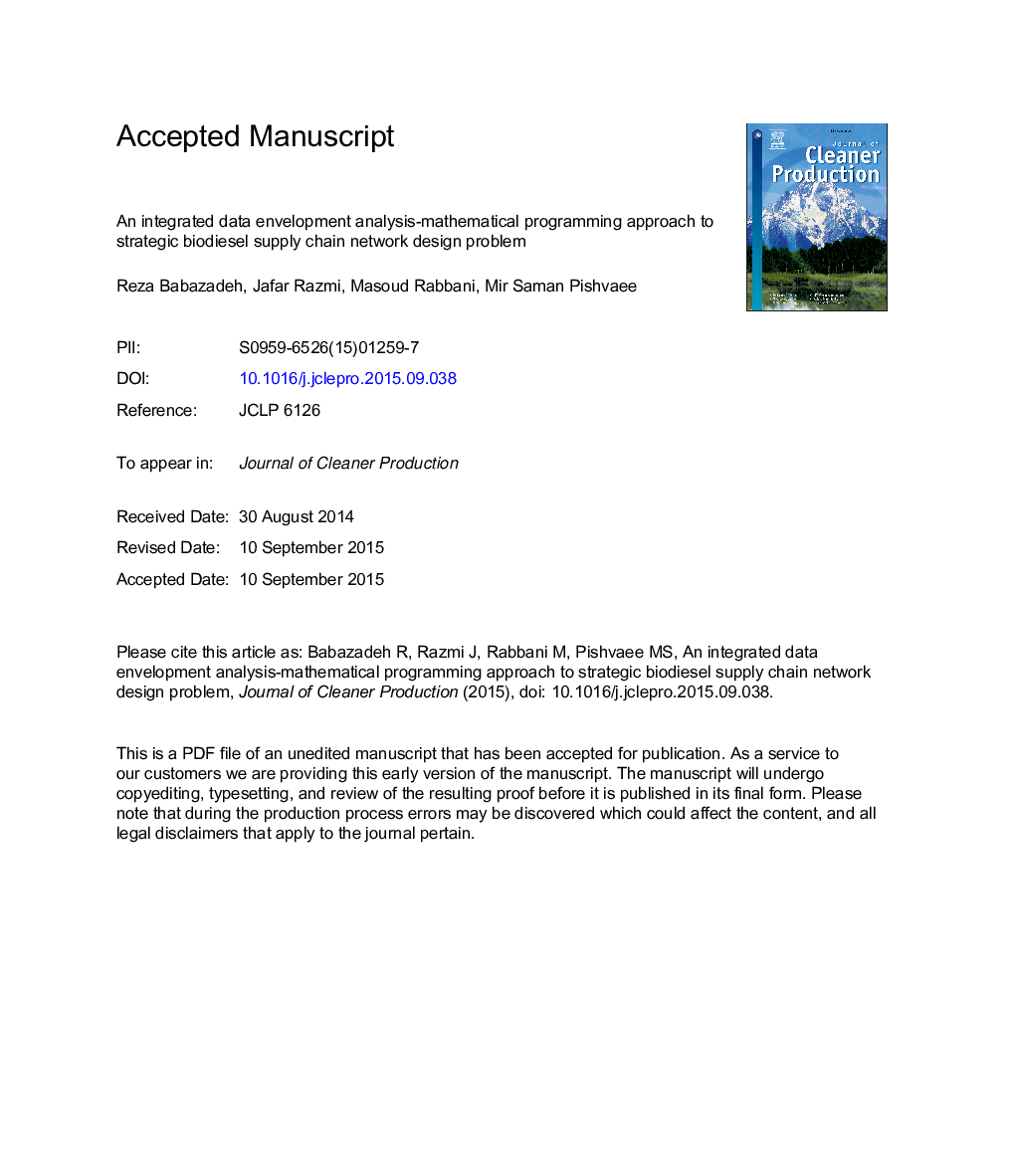| Article ID | Journal | Published Year | Pages | File Type |
|---|---|---|---|---|
| 5481513 | Journal of Cleaner Production | 2017 | 42 Pages |
Abstract
Global warming, environmental issues, food crisis and energy security are the main concerning problems which have triggered a sense of urgency among policymakers and development practitioners to find sustainable and viable solutions in the area of bioenergy. Among various edible and non-edible bioenergy feedstocks specified for biodiesel production, Jatropha curcas L. (JCL) and waste cooking oil (WCO) have been introduced to be promising and sustainable. In this study, an integrated hybrid approach based on a data envelopment analysis (DEA) and mathematical programming techniques is presented for the strategic design of biodiesel supply chain network in Iran. In the first phase, JCL cultivation areas are assessed according to climatic and social criteria by a unified DEA (UDEA) model. In the second phase, the locations which have achieved desired efficiency scores are considered as candidate locations for JCL cultivation within a mathematical programming model developed for designing the biodiesel supply chain network. The proposed mathematical programming model optimizes the numbers, locations and capacities of JCL cultivation centers, JCL seeds and WCO collection centers, bio-refineries, and distribution centers. The proposed approach is implemented in Iran for 10 years planning horizon. The results show the usefulness and efficiency of the proposed method in assisting the policymakers to take suitable strategic and tactical level decisions related to biodiesel supply chain planning.
Related Topics
Physical Sciences and Engineering
Energy
Renewable Energy, Sustainability and the Environment
Authors
Reza Babazadeh, Jafar Razmi, Masoud Rabbani, Mir Saman Pishvaee,
